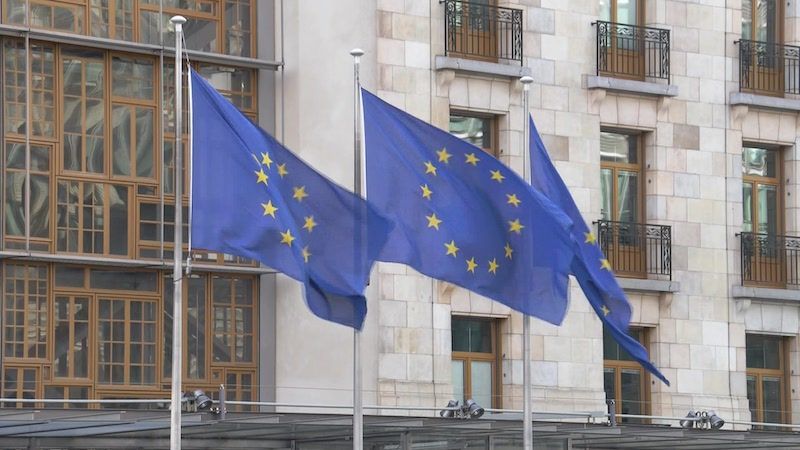- Home
- Middle East
- Mainstream Media Distorted Events in Amsterdam

In the wake of riots involving Israeli football fans in Amsterdam, Western media outlets have faced intense scrutiny for allegedly misrepresenting the events. According to eyewitnesses, including local journalist accounts, Israeli fans of Maccabi Tel Aviv caused significant disruptions, engaging in hooligan behavior and chanting anti-Arab slogans.
However, subsequent media reports reframed these incidents, often portraying Israeli fans as the primary victims of local hostility while downplaying or omitting their actions during the disturbances.
Eyewitness footage and testimonies circulated online contradicting this mainstream narrative. Witnesses described aggressive behaviors, including attacks on local businesses and confrontations with Amsterdam residents. Many say the provocative actions of the Israeli football fans before the clashes were erased from coverage in European media.
Initially, Sky News shared a detailed report on the incidents, showing footage of Israeli fans tearing down Palestinian flags, chanting anti-Palestinian slogans, and attacking locals. However, the video was later re-edited with a focus on "antisemitic" motives behind the attacks, omitting provocative actions by the Israeli fans and aligning with statements by political figures. The re-edit sparked backlash, with critics accusing outlets of disinformation and some journalists and academics lodging formal complaints.
Some reports initially acknowledged this behavior, but as coverage evolved, certain outlets edited their reports, casting the incidents as isolated clashes rather than coordinated disruptions. This reframing of events sparked outrage on social media and among journalists and activists, who labeled it a deliberate distortion of the truth.
It's a clear example of media bias and double standards, often seen when events involve non-Western groups or narratives.
Critics argue that this incident reflects a broader pattern in Western media, where the narrative often shifts depending on the actors involved. By minimizing reports of anti-Arab slogans and downplaying the violence, critics say, media outlets contributed to a one-sided portrayal that obscured the full picture. In response, journalists and advocates called for more balanced reporting, accusing some outlets of sanitizing or selectively editing details that would otherwise reflect poorly on certain groups.
In a broader context, this episode has fueled debate over media accountability and biases in coverage. Observers emphasize the importance of accurate reporting, particularly concerning sensitive issues tied to nationalism, identity, and international relations. For many, the Amsterdam riots underscore the need for transparency in reporting news and the critical role of independent eyewitnesses and citizen journalists in holding the media to account. This event echoes a broader issue across Europe, where increasing cultural and political divides foreshadow a future marked by social unrest.
Is Europe Headed Toward a Bleak Future?
As Europe moves into the mid-21st century, the continent faces various complex challenges. Politically, economically, and in terms of security, European nations confront potential crises that could reshape their futures. Many observers are concerned that the next decades may bring instability, insecurity, and a significant shift in Europe's global standing.
Let’s examine the root causes and implications of these looming challenges.
Political Fragmentation and Rising Populism
Europe's political landscape is becoming increasingly polarized, as witnessed in the Netherlands, where tensions have been rising over issues like immigration and security. Amsterdam’s recent violence has fueled ongoing debates over national security and integration policies, echoing the discontent that populist movements have seized upon across the continent. In countries such as France, Germany, Italy, and Poland, populist parties are gaining traction, often promoting nationalist and protectionist policies that directly challenge the European Union’s ideals of unity and cooperation.
This growing political fragmentation weakens the EU’s ability to create cohesive policies on pressing issues like immigration, digital regulation, and environmental sustainability. As more member states prioritize national sovereignty over EU directives, the union risks becoming a collection of loosely connected countries rather than a unified political bloc. Brexit’s lingering impact remains a reminder of how quickly political discontent can erode support for European unity, creating the potential for other nations to consider similar paths should dissatisfaction continue.
Europe is also grappling with economic stagnation and an impending financial burden that is becoming increasingly difficult to ignore. Many economies in Southern Europe, including Spain, Greece, and Italy, are still struggling with high debt, aging populations, and a lack of substantial economic growth. These challenges have left them vulnerable to external shocks, such as rising energy prices and inflation, which have escalated due to geopolitical events and supply chain disruptions.
The incident in Amsterdam highlighted the broader security challenges facing Europe, including the rising threat of terrorism and the complexities of managing large-scale migration. Since the 2015 migration crisis, European countries have been grappling with issues of integration, with recent attacks amplifying concerns over homegrown extremism. The vast majority of migrants are law-abiding individuals, but the few exceptions have sparked fears of radicalization within immigrant communities, complicating the debate on how Europe should manage future arrivals from conflict zones.
On an international level, Europe faces a heightened threat from Russia, whose actions in Ukraine have left Eastern European nations, particularly those along NATO's eastern border, feeling vulnerable.
While NATO offers a security guarantee, the reliance on the United States for defense remains a point of contention, especially as the US shifts its focus toward the Asia-Pacific to counter China’s rising influence.
Cybersecurity is another area of concern, as European nations face frequent cyberattacks and disinformation campaigns. These threats target critical infrastructure, including finance, healthcare, and transportation, highlighting vulnerabilities in digital infrastructure. Europe’s reliance on technology and data-driven systems requires strong cybersecurity measures, yet member states vary widely in their readiness to respond to these threats, leaving the continent exposed to sophisticated forms of hybrid warfare.
French President Emmanuel Macron has recently warned that Europe is facing an existential crisis. In a speech at the Sorbonne, he stated that without bold actions to address geopolitical threats, economic protectionism, and Europe's reliance on external powers like the US and China, the continent's future is at risk. Macron emphasized the urgency of European autonomy, particularly in defense and trade, warning that Europe could "die" if it does not adapt to rapidly changing global dynamics.
Europe stands at a crossroads. Recent events have highlighted vulnerabilities in political unity, economic resilience, and security preparedness. The decisions that Europe’s leaders make now will shape whether the continent can overcome these challenges or if it will continue down a path of division, stagnation, and insecurity.
Read more



Comments